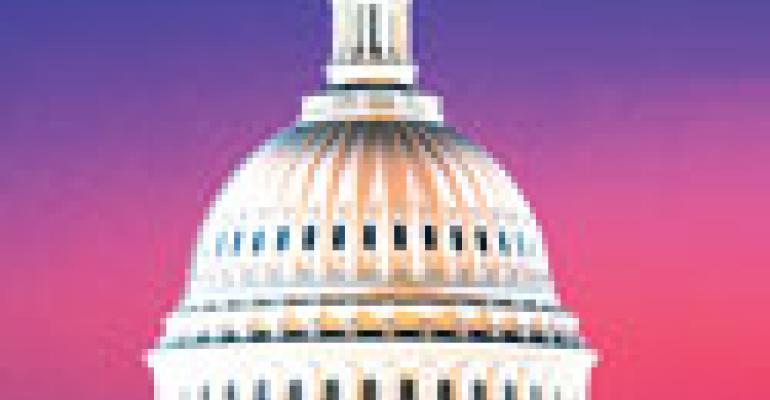WASHINGTON The U.S. House of Representatives passed late Saturday its version of health care reform, the Affordable Health Care for America Act, which includes some measures that industry groups consider to be anti-business and too expensive for restaurant companies.
The next steps for a major overhaul in U.S. health care, which has been a major priority of the Obama administration, now rest with the Senate, which will debate its own version of reform. Reports indicate that a Senate vote may come as early as Thanksgiving. President Barack Obama is not expected to see actual legislation, which would include compromises from both House and Senate bills, until next year.
The National Restaurant Association, International Franchise Association and National Council of Chain Restaurants all said last week that they opposed the House bill, which mandates that employers offer health benefits to part-time employees or pay a penalty.
On Thursday, the International Franchise Association voiced its opposition to the health care reform bill, claiming that the legislation's passage would harm small-business operators.
"Unless portions of the legislation are tailored to reflect the economic and operational realities facing our industry, we will be forced to oppose the bill," Dawn Sweeney, president and chief executive of the National Restaurant Association, said in a letter sent to all members of the House prior to the weekend vote.
Sweeney added that the NRA "supports the broad objects [of the measure] to lower costs and increase health coverage access."
The House bill also requires employers to either provide a qualified benefits plan for employees and their dependents or else pay a percentage of their payroll into a Health Insurance Exchange. Businesses with a payroll of $500,000 or less would not have to pay the penalty. The percentage ranges of penalty payments range from 2 percent up to 8 percent, depending on the size of the payroll.
The House bill further includes provisions for menu labeling. The bill outlines general nutrient-labeling requirements for restaurants and retail establishments that are part of a chain with 20 or more outlets.
Last week, the International Franchise Association voiced its opposition to the health care reform bill, claiming that the legislation's passage would harm small-business operators. Separately, the National Council of Chain Restaurants urged lawmakers to oppose the bill "or any subsequent iteration … that includes costly employer mandate or penalty provisions."
In its letter to House members, the NRA maintained that the foodservice industry is made up largely of small businesses "with an average profit margin of less than 4 percent, and in the current economic environment total industry sales are down considerably over the last two years."
The NRA said that more than 90 percent of the foodservice industry is made up of small businesses with 50 employees or fewer. "Without a broader exemption for small businesses, as well as consideration for the overwhelming number of part-time employees we have, the bill would place unforeseen hardships on our industry."
The association asked that bill's impact on the foodservice industry be considered "before legislation is finalized through conference."
Earlier, David French, vice president of government relations of the IFA, said the organization supports health care reform but added that it "cannot support reform at any price."
While the IFA supports several provisions in HR 3962 that make "necessary changes in the insurance market and provide pathways for some small businesses to access affordable coverage," French said the bill's $1 trillion price tag raises serious concerns.
"Much of the revenue necessary for this level of federal spending will come on the backs of small franchise businesses through a series of tax surcharges and penalties," he said.
"The IFA's longstanding priority is to ensure that health insurance is more affordable for franchise businesses and their employees."
French also said the IFA is against any federal mandate for employers to provide health coverage and the establishment of a public option "that will, over time, shift costs onto employer-sponsored private insurance coverage."
"HR 3962 is a significant government intrusion into the benefits decisions of employers," he said.
Scott Vinson, the NCCR's vice president, said in the organization's letter to House members, the organization hoped that Congress "would provide an excellent opportunity for all stakeholders to work together on a bipartisan, consensus-based approach to bring health care costs down and expand coverage to working Americans who do not currently have it. As you know, health care inflation threatens to price coverage out of reach for employers that currently provide it to their employees, and puts it even further out of reach for employers who would like to do so.
"Regrettably," the letter continues, "the employer mandates and mandates on coverage in HR 3962 will only serve to raise the cost of employer-provided health insurance, worsening an already difficult situation."
Contact Paul Frumkin at [email protected] .





